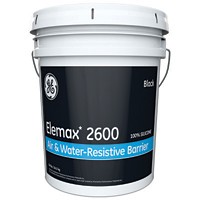Advertisement
Grab your lab coat. Let's get started
Welcome!
Welcome!
Create an account below to get 6 C&EN articles per month, receive newsletters and more - all free.
It seems this is your first time logging in online. Please enter the following information to continue.
As an ACS member you automatically get access to this site. All we need is few more details to create your reading experience.
Not you? Sign in with a different account.
Not you? Sign in with a different account.
ERROR 1
ERROR 1
ERROR 2
ERROR 2
ERROR 2
ERROR 2
ERROR 2
Password and Confirm password must match.
If you have an ACS member number, please enter it here so we can link this account to your membership. (optional)
ERROR 2
ACS values your privacy. By submitting your information, you are gaining access to C&EN and subscribing to our weekly newsletter. We use the information you provide to make your reading experience better, and we will never sell your data to third party members.
Business
Specialties maker Vertellus files for bankruptcy
Dynamic chemical firm succumbs to stiff competition in China
by Alexander H. Tullo
June 2, 2016
| A version of this story appeared in
Volume 94, Issue 23
Under the weight of high debt and slumping markets, Vertellus Specialties has filed for Chapter 11 bankruptcy protection. Lenders are ready to take over the firm for $454 million if other bidders don’t materialize over the summer.
The private equity firms Arsenal Capital and Wind Point Partners built Vertellus over the past decade with pieces from Reilly Industries, Cambrex, and other firms.
The company, which has nearly $700 million in annual revenues, is the world’s largest producer of pyridines, picolines, and the insect repellant N,N-diethyl-meta-toluamide (DEET). The company also has strong positions in vitamin B-3 as well as castor oil and citrate derivatives.
Timeline
Vertellus’ bankruptcy followed a series of expansion moves.
▸ 2003 Arsenal Capital Partners acquires Rutherford Chemicals from Cambrex.
▸ 2005 Arsenal purchases family-owned Reilly Industries.
▸ 2006 Arsenal merges Reilly and Rutherford to form Vertellus.
▸ 2007 Arsenal sells Vertellus to Wind Point Partners.
▸ 2013 Vertellus buys stake in Chinese pyridine plant.
▸ 2014 Vertellus buys U.K. fine chemicals maker Pentagon Chemicals.
▸ 2015 Vertellus acquires Dow Chemical’s sodium borohydride business.
▸ 2016 Vertellus meets increasing demand for the insect repellent DEET because of the mosquito-borne Zika virus.
Recent acquisitions include purchases of Dow Chemical’s sodium borohydride business and the British fine chemicals maker Pentagon Chemicals. Vertellus also acquired a pyridine plant in China and, earlier this year, completed a DEET expansion in Greensboro, N.C.
In explaining the bankruptcy in court documents, the company says it “faced a slowing of growth rates for its pyridine and picoline products, coupled with significant increases in global capacity and production, primarily from Chinese manufacturers.” The company also blames a high debt load as well as environmental and pension burdens.
One of the main uses of pyridine is making the herbicide paraquat. Crop protection chemicals of all kinds have been under pressure from slumping farm commodity prices.
The bankruptcy wasn’t unexpected. In April, Vertellus missed an interest payment on a loan. In lowering the company’s credit rating at the time, the ratings agency Moody’s foretold of a possible “sale of some or all of the business.”
The bankruptcy court will oversee a bidding process over the next couple of months to see if the banks’ opening offer stands or if higher bidders emerge. Vertellus is getting $110 million in financing to run day-to-day operations.
The company’s Elma, Wash.-based sodium borohydride business, acquired from Dow, is not included in the bankruptcy. Wind Point will continue to own and operate it under the name Vertellus Performance Chemicals.





Join the conversation
Contact the reporter
Submit a Letter to the Editor for publication
Engage with us on Twitter